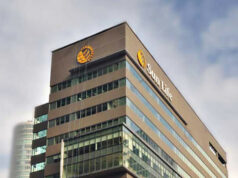Peso weakens as Trump backs strong dollar
THE PESO weakened against the dollar on Friday on the back of President Donald J. Trump’s statement on a stronger dollar and dovish remarks from the European Central Bank (ECB).
The local currency ended Friday’s session at P50.84 versus the greenback, three centavos weaker than its P50.81-per-dollar close on Thursday.
The peso opened the session lower at P50.91 versus the dollar, while its intraday high stood at P50.80. The peso’s worst showing, meanwhile, stood at P50.95 against the greenback.
Dollars traded moved sideways to total $1.053 billion from the $1.049 billion that changed hands in the previous session.
“I think the dollar-peso [trading] moved sideways,” Ruben Carlo O. Asuncion, chief economist of UnionBank of the Philippines, said in a phone interview on Friday.
However, he noted that the remarks of President Donald J. Trump regarding the dollar affected the movement of the dollar.
In a CNBC interview, Mr. Trump said he is in favor of a strong dollar.
“The dollar is going to get stronger and stronger, and ultimately I want to see a strong dollar,” he said in an interview during the World Economic Forum in Davos, Switzerland.
This remark is in contradiction to the statement of US Treasury Secretary Steven T. Mnuchin a day earlier, saying that the weak dollar is “good for us.”
“Obviously a weaker dollar is good for us as it relates to trade and opportunities,” Mr. Mnuchin told reporters, according to Reuters.
Meanwhile, a trader said the peso weakened amid dovish remarks from the ECB.
“Dovish remarks from the European Central Bank in its meeting yesterday (Thursday) that it will continue in its expansionary policy mainly caused the dollar to strengthen,” the trader said.
The ECB kept its interest rates unchanged during its monetary policy meeting on Thursday night.
In return, the euro plunged traded above the $1.25 level intraday, its worst since May of last year.
The trader added that the remarks from the ECB left a “a spill-over effect to the dollar-peso exchange rates.” — KANV



